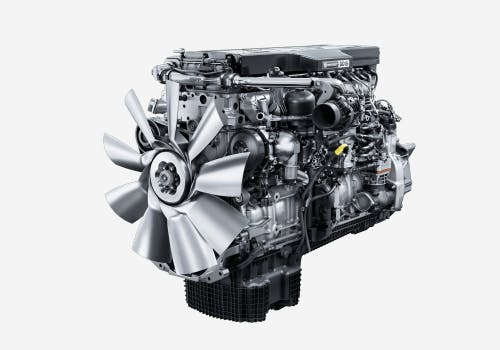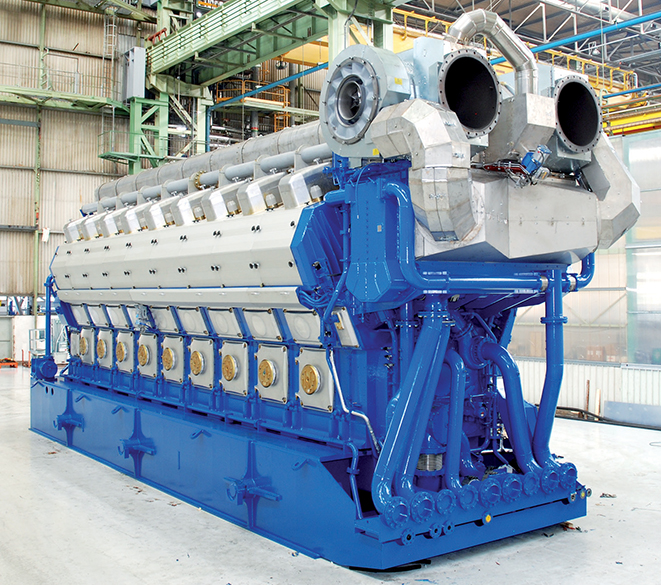Discover High-Quality Imports with Engines For Africa
Discover High-Quality Imports with Engines For Africa
Blog Article
Explore a Large Range of Engines for Every Car and Function
The automotive landscape is increasingly intricate, with a varied selection of engine kinds made to meet certain performance and effectiveness demands across different lorry groups. From the high-performance engines that power cars to the fuel-efficient choices tailored for everyday travelling, the options are vast and differed. Furthermore, heavy-duty engines offer the demands of work cars, while environment-friendly choices are obtaining traction in the search of sustainable transportation. Comprehending these differences is critical for making notified decisions, especially as emerging modern technologies proceed to form the future of auto engineering. What ramifications might these developments hold for manufacturers and consumers alike?
Types of Automotive Engines
Automotive engines can be classified into several distinctive kinds, each created to fulfill particular performance and performance needs. One of the most common groups include inner combustion engines, electrical engines, and hybrid systems.

Electric engines, on the various other hand, operate on electric power saved in batteries, supplying immediate torque and zero emissions. These engines are coming to be progressively prominent due to developments in battery innovation and the expanding emphasis on sustainability.
Crossbreed systems combine both internal burning and electrical engines, allowing lorries to enhance gas efficiency and minimize discharges by perfectly switching over between source of power. Each engine kind provides its downsides and benefits, influencing variables such as car style, intended use, and market need. When picking the ideal engine for their particular demands., understanding these differences is important for manufacturers and consumers alike.
Performance Engines for Sports Cars
Efficiency engines for cars are specifically engineered to deliver boosted speed, power, and agility, establishing them apart from conventional auto engines. These engines often utilize sophisticated innovations such as turbocharging, supercharging, and variable valve timing to make the most of effectiveness and responsiveness.
Normally, efficiency engines are designed with greater compression ratios, which enable better power removal from gas. This leads to remarkable horsepower and torque figures, making it possible for rapid velocity and higher full throttle. In addition, the light-weight materials used in these engines, such as aluminum and carbon fiber, add to minimized overall automobile weight, enhancing handling and maneuverability.
Engine arrangements like V6, V8, and even hybrid systems are common in efficiency sporting activities automobiles, each offering unique advantages in regards to power delivery and driving characteristics. The adjusting of these engines is also essential; numerous producers enhance the engine monitoring systems to give an exhilarating driving experience, typically consisting of sporting activity settings that readjust throttle feedback and equipment changes.
Efficient Engines for Daily Commuters
In the world of daily commuting, efficient engines play a crucial function in enhancing gas economic climate and lessening emissions while providing trustworthy performance. As urban populaces grow and ecological worries increase, the need for cars furnished with reliable read the article powertrains has surged.
Modern engines developed for day-to-day commuters commonly include technologies such as turbocharging, direct gas injection, and hybrid systems. Turbocharging boosts engine efficiency forcibly more air right into the combustion chamber, enabling smaller, lighter engines that do not jeopardize power outcome. Straight gas shot improves gas atomization, causing much better combustion and boosted efficiency.
Hybrid engines, combining inner combustion with electric power, additional augment fuel economy, particularly in stop-and-go web traffic, where standard engines can experience inadequacies. Electric motors help during velocity and can run individually at reduced speeds, lowering general fuel intake.
Furthermore, developments in engine management systems and lightweight materials contribute considerably to effective engine design. By concentrating on performance, sturdiness, and ecological sustainability, producers proceed to provide engines that not only meet the demands of daily travelling yet additionally align with global initiatives to lower carbon impacts.
Heavy-Duty Engines for Work Vehicles
Durable engines for work cars are regularly engineered to supply phenomenal torque and dependability under demanding conditions. These engines are designed to execute in environments where typical engines might falter, such as building websites, logging procedures, and agricultural setups. The key focus of heavy-duty engines is their capacity to create high degrees of power while preserving longevity over extended periods of procedure.
Normally, sturdy engines use sophisticated materials and robust construction methods to endure the rigors of heavy work. Functions such as strengthened cylinder blocks, enhanced cooling systems, and progressed fuel injection technologies contribute to their effectiveness. These engines commonly run at reduced RPMs, which aids to maximize gas effectiveness while providing the needed power for towing and hauling.
In enhancement to mechanical robustness, durable engines are frequently equipped with innovative digital control systems (ECUs) that manage performance, emissions, and diagnostics. This combination permits far better surveillance and upkeep, guaranteeing that job vehicles stay reliable and operational.
Ultimately, durable engines are an important element in the productivity of different sectors, supplying the needed power and integrity to take on the click for more info hardest of jobs.
Eco-Friendly Engine Options
The growing focus on sustainability has actually led to the growth of environmentally friendly engine options that focus on reduced discharges and improved gas performance. These engines are made to lessen the environmental effect of cars while still providing the performance and dependability anticipated by customers.
Amongst one of the most significant green choices are electrical and hybrid engines. Hybrid engines integrate conventional interior burning engines with electrical propulsion, enabling decreased gas usage and lower greenhouse gas discharges. Electric engines, on the other hand, operate totally on battery power, creating zero tailpipe emissions and adding to cleaner air quality.
One more promising development is the development of biofuel engines, which utilize renewable energies, such as plant products, to power automobiles (Engines For Africa). By utilizing biofuels, these engines can reduce reliance on fossil gas and lower overall carbon footprints

As the automotive additional hints market develops, eco-friendly engine choices will play an important function in driving the shift towards even more sustainable transport solutions.
Conclusion
The automobile sector supplies a diverse selection of engines developed to meet various car needs and objectives. From high-performance engines that enhance sports car capacities to reliable models prioritizing gas economic climate for day-to-day travelers, each kind serves a particular function. Sturdy engines provide to robust job cars, while green choices, such as electrical and biofuel engines, advertise sustainable transport. This comprehensive range makes sure that all driving requirements are resolved, adding to developments in vehicle modern technology and environmental stewardship.

Report this page